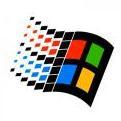cc333 last won the day on March 21 2022
cc333 had the most liked content!
About cc333

Profile Information
-
OS
XP Pro x64
Recent Profile Visitors
The recent visitors block is disabled and is not being shown to other users.
cc333's Achievements
194
Reputation
-
At least the acronym (BSoD) will still be valid, since both black and blue begin with the letter 'b' c
-
Hmm, how fascinating. It must be something about your specific hardware that only works best on Vista, and malfunctions (and sounds bad) on any other version. My hearing is fairly good, and I still can't really tell the difference between 44.1 and 96 or 192, so I just go with 44.1 to save on disk space. MP3 at the highest possible bitrate (320) is tolerable, I find, but once it starts dropping below 192, it becomes increasingly awful. My preference, of course, is uncompressed WAV or AIFF (I guess FLAC is supposed to be good, but I tend not to use it much because support for it isn't as universal as it is for MP3 and WAV). c
-
That's strange. I've never had any trouble with sound on XP. All cards I've tried function as they should, and I could set 44.1kHz (or any other supported sample rate) easily. Of course, I've often used USB or Firewire (IEEE1394) audio interfaces with ASIO support for top sound quality, and they usually include decent drivers; in my experience, I've found that virtually all of the so-called "HD" sound systems built into most XP-era motherboards have stupidly bloated and half-broken drivers and often are hideously noisy and cheap sounding regardless of driver or Windows version (if anything, newer Windows versions with newer drivers sound worse as the already mediocre support the bad drivers have deteriorates further). Perhaps your drivers weren't fully compatible or something was wrong with your sound card? c
-
I like how XP can be "tamed" and with a few simple settings, the whole "fisher-price" theme can be disabled, after which it looks and feels basically like an upgraded version of Windows 2000, especially before SP2. c
-
True, but I mainly used the Extended Kernel to gain access to a more modern web browser; Then-recent versions of Java and Notepad++ ran fine without it. c
-
Speaking of irrational hatred of old operating systems.... I just remembered an anecdote of mine from a programming class several years ago (I think it was 2017 or so). The instructor was very much one of those "newer is better" people, and actively shunned anything that wasn't "now" and encouraged all his students to do the same. So what did I do? I brought in and used my Dell Latitude D630 (then about 11 years old) running Windows 2000 (then at least 16 years old, and 7 years out of date), and, via blackwingcat's Extended Kernel, I was able to run the then-current versions of Java and Notepad++ and complete my assignments just as well as my classmates with their fancy Windows 10-based stuff. I didn't have to do this (I had a nice, then-current Apple MacBook Pro I could've used instead), so why did I? Well, mainly to prove that I could. Plus it was fun to spite the instructor and prove to him that old computers can still be useful (he was rather arrogant and I didn't like him very much). c
-
Over the past summer, I set up a 6th gen-based Dell Optiplex with Windows 7, and that thing absolutely flies with a nice 1 TB SSD and 16 GB of RAM. I've been thinking of *gasp* upgrading it to 10, but, honestly, I don't really see any point to it other than curiosity. 7 is doing everything I want with no problems, and there's no reason to change it unless/until I encounter something I want to use that it can't run. If I had a spare SSD that I could swap in, maybe I would try 10, so that if I didn't like it (and I probably wouldn't), I could simply swap my undisturbed Windows 7 SSD back in and pick up where I left off. c
-
Neither do I! My favorite Windows is 95, followed by (in order from most to least): 98 SE, 2000, XP, and 7. I don't care much for 8.x, but I've found that with some effort, it can be rendered mostly sane. 10 is harder, and it has a tendency to self destruct, so I try to avoid it. Since I use Apple MacOS primarily, I don't need to bother with the latest Windows. 2018, I believe, was about when Google (I think) told everyone to mandate https and TLS1.2, among other things, and naturally most sites complied. This, of course, broke virtually all older browsers, which lack support for modern security protocols. A couple years later (2020) for similar reasons, MS began breaking Windows Update for older Windows, like 2000 and XP (via extraordinary measures, some degree of WU functionality remains, but stock WU is completely broken now). There's not much that cn be done about WU, but as for ancient browsers, if you set up a proxy that handles the security, things get better, but then they get choked up on the rampant javascript. If you strip that out too, you can still get a weirdly rendered, but somewhat usable page which is usually good enough for basic text. This can be fixed somewhat by web proxies that can reformat a page into something more usable that old browsers can render more or less correctly, but ultimately a current browser is needed for full functionality. c
-
Such a thing actually does exist. It's called Windows NT 4.0. However, Windows 2000, AKA NT 5.0, seems somewhat better because it still has a similar look and feel (although the "webbified" variant from 98), but includes many of the conveniences that are often taken for granted, such as Device Manager, Plug & Play, full support for USB HIDs (and at least partial support for USB mass storage), etc. NT 4 and earlier never had any of that. Of course, it follows that XP (NT 5.1-5.3) was the best Windows overall (and in my opinion still is, at least as far as the UI is concerned; there's a good reason why it outlasted every other version, having been continuously supported and updated in some form for almost 20 years!) because it took many of 2000's firsts and refined them with new features and even better reliability. 10 and 11 may have full support for modern hardware, but all that spyware junk is just unnecessary (I've read about how people were worried about all the spyware MS was including in Windows all the way back to Windows 98. If only they had known what was to come 15 years later, maybe they wouldn't have complained so much....) c
-
Wow! I've been out of the vintage Windows scene for awhile, and last I knew, the best, most "modern" browser was the Chinese Extreme360 that was hacked to display in English and remove all/most if the CCP (Chinese Communist Party) spyware and other similar junk. This Supermium, in principle, seems much better however, in the sense that it's a maintainable and reproducible port of Chromium, so the source code is available, unlike Extreme360, which is closed source. Last I knew, this was thought to be either impossible or prohibitively difficult, so I'm glad there was finally a breakthrough, as a native Chromium port seemed to be the most viable path forward, given that even the latest ports of the various Firefox-derived browsers have fallen increasingly out of date and/or are not working super reliably anymore as bugs and half-broken features begin to pile up. While in general I loathe to use Google Chrome and reluctantly use the open-sourced Chromium only when absolutely necessary, I will definitely consider giving Supermium a try, at least on my Windows XP, Vista and 7 machines. c
-
@66catsAll very good points. I'm not opposed to "reasonable" cuts to old hardware support, if doing so would guarantee that the OS will run reliably and have reasonable performance, even when running on the minimum supported configuration (95 on a 486, which I ran exactly once, is painfully slow even by late 90s-early 2000s standards, but usable once fully booted; I wouldn't want to try 98 or XP on a 486, though (XP can now be forced to run on 486, apparently, but it's almost useless for anything other than a proof of concept), especially with all the IE integration). It's the lack of support for otherwise perfectly fine hardware on account of a relatively minor technicality that comes across as kind of irksome. I didn't realize that Coffee Lake (8th gen) was from 2017 for some reason, so that helps somewhat. But what about 6th and 7th gen? They're not much older (2015 and 2016, respectively), are very similar architecturally to Coffee Lake, and 11 runs perfectly fine on them, yet both are officially unsupported and Windows refuses to install without workarounds. c
-
Yes, but consider the late 90s and 2000s, where new CPUs showed up regularly with all kinds of fancy new instructions. MS took advantage of many of these new instructions, and, yet, they were simultaneously able to retain compatibility with older CPUs that lacked the new instructions. What is so different between then and now? The fundamentals of how the x86 architecture works haven't changed that much, have they? I think that dumping compatibility with 2-4 year old hardware "for security reasons" is just an excuse to be lazy. They can absolutely make use of the new stuff and still retain compatibility with most of the old. They did that for years and it worked well enough. Yes, it would be unrealistic to maintain full compatibility with, say, the i386, or anything else that can't run at least 1 GHz and 4 GB of RAM, but they could certainly keep, at a minimum, higher-end Core2 Duos and all 1st gen Core i stuff (Nehalem and Westmere, etc). c
-
XP and its derivatives seem to be the cockroaches of the PC world, don't they? They won't die! c
-
My Windows 11 impressions so far are that most peoples' impressions of it aren't that great (I haven't used it myself, and probably won't any time soon). I waited 7 years for Windows 10 to get better — and it never really did, so I'm not waiting around for 11, because I doubt it'll ever get meaningfully better either. Microsoft simply doesn't seem to care anymore, so why should I? c
-
And Happy New Year! c
- 1,105 replies
-
- restore
- windowsupdate
-
(and 3 more)
Tagged with:



